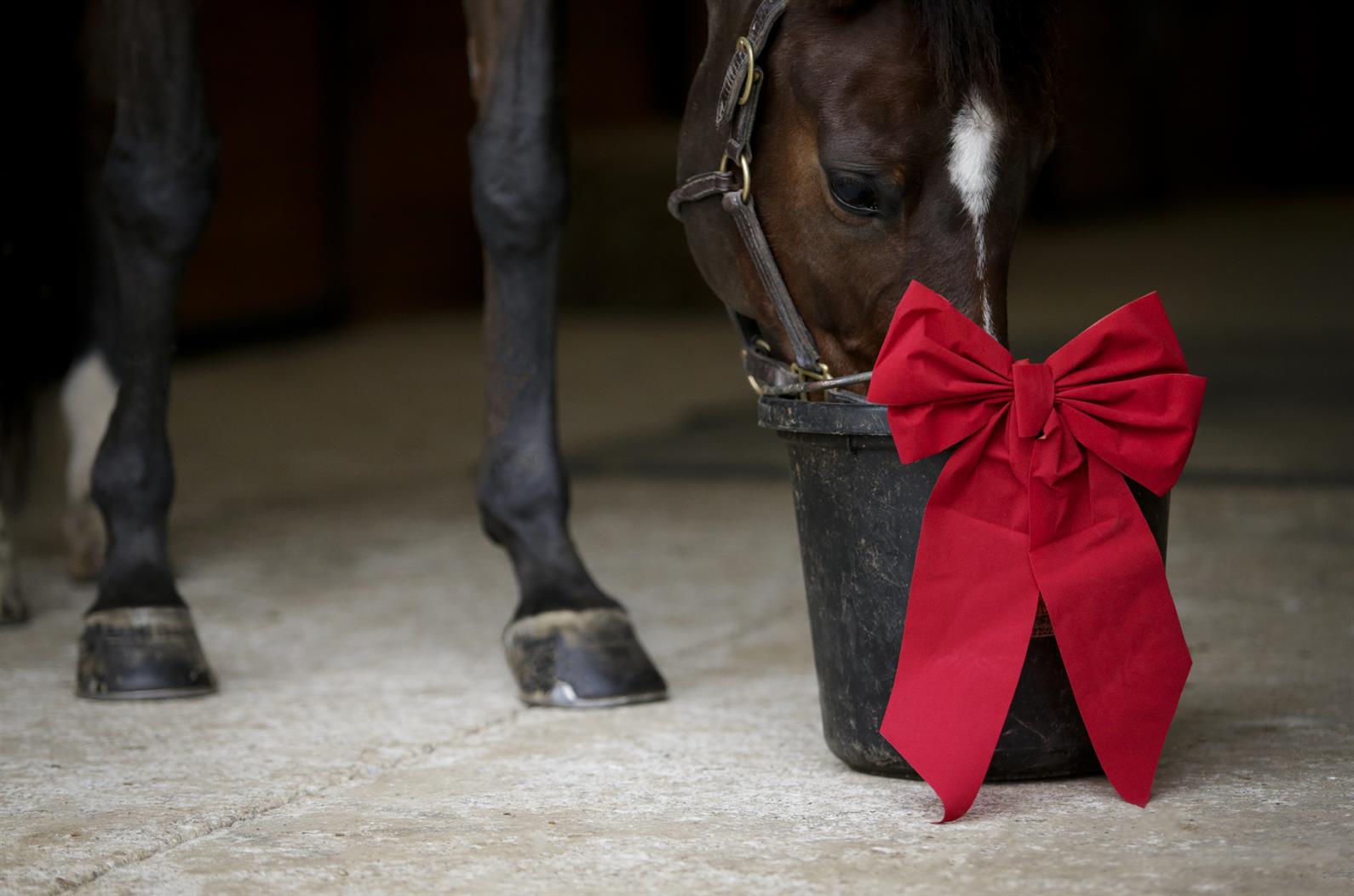During the holiday season, you may be looking for ideas on how to give your horse a special treat to show your appreciation. One idea is treating your horse to a bran mash. We spoke with Dr. Luke Fallon from Hagyard Equine Medical Institute to find out more about bran mashes: why veterinarians recommend them and what ingredients are typically included in them.
Bran mashes act as a sort of “comfort food” that horses seem to enjoy when they are feeling under the weather or if it is cold outside. Fallon explained that bran mashes are often fed when a horse has been under stress from situations such as colic, illness, injury, shipping, or surgery. Broodmares are often fed bran mashes after foaling. “[Caregivers] will feed them for three to five days as the gastrointestinal tract adjusts to having more room in the abdominal cavity, as well as to help with the stress of foaling,” Fallon said.

Frigid winter temperatures tend to discourage horses from drinking enough water, so a soupy bran mash can be beneficial. “If you are in a really cold environment and the horses are eating a lot of dry matter, such as hay, giving a bran mash is something to consider. When it gets really cold, they have a propensity to not want to drink as much water,” Fallon said.
Fallon explained that one of the main points of feeding a bran mash is colonic emptying, or better hindgut motility after ingesta (food) exits the cecum. Fallon emphasized, “You are trying to ensure that you are getting plenty of moisture into the horse’s gastrointestinal tract and that they have proper motility and stool formation. … Peristalsis, or the rhythmic, orchestrated contracting of the intestines, cannot function properly if the ingesta is too dry.”
Fallon noted that a bran mash contains non-digestible fiber, such as wheat bran, rice bran, oat husks, and beet pulp. If you do use beet pulp, be sure to soak it thoroughly in warm water. “It is important to soak it before you feed it; don’t just chuck it in the bucket,” Fallon cautioned. “If you put a little water on it and feed it right away, it is almost like eating dehydrated fruit; you can create a problem with that.”
Other ingredients may be added into the bran mash such as psyllium, another form of fiber, or Glauber’s salt. “We do occasionally have people add Glauber’s salt, which is sodium sulfate, and that will promote more retention of fluid in the gut so that the horses don’t get impacted,” Fallon said.
Most horses seem to enjoy eating a bran mash, but other additives can be included to improve the taste. Fallon noted that a small amount of apple cider vinegar can sweeten the taste of a bran mash. A stout beer, such as Guinness, is another appetizing ingredient with added benefits to support a healthy digestive tract. Bacteria, or microbes, in a horse’s gastrointestinal tract must be balanced for them to digest food properly, and beer can help level out the bacteria if things have become unbalanced. “The beer also provides some calories in the form of carbohydrates, and, over time, it can change some of the gut flora,” Fallon said. “You are feeding the microbes in the cecum. If the horse has been on antibiotics or again a stressful event that has maybe altered the gut flora, [the beer] can promote a bacterial or microbial balance in the cecum.”
There are a few things to note if you are giving a bran mash. Since bran mashes are usually given during bouts of illness or stress, Fallon explained, “Generally, we do not do give them long term.” He also pointed out that bran mashes are fed in conjunction with normal feedings, not in replacement of them. Lastly, Fallon pointed out, “You don’t want to overdue something like Glauber’s salt and make the stool too lose.”
Whether a bran mash is given during extreme winter weather or a period of stress, your horse can remain hydrated and stay on track to living a healthy life.
Want articles like this delivered to your inbox every week? Sign up to receive the Equestrian Weekly newsletter here.
This article is original content produced by US Equestrian and may only be shared via social media. It is not to be repurposed or used on any other website than USequestrian.org.


